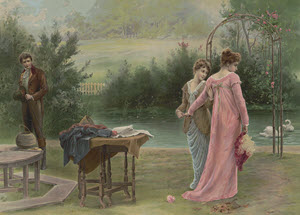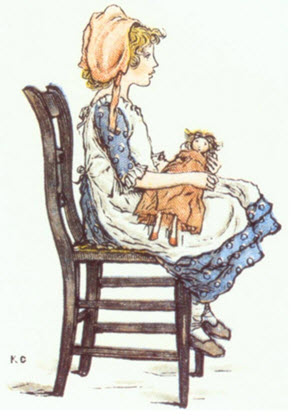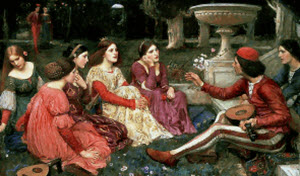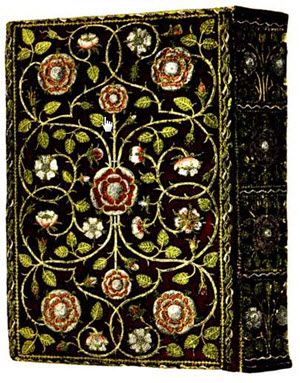EDGAR ALLAN POE - Part 6
II.
After leaving the University of Virginia, Poe was not in Mr. Allan's favour, though the final break did not come till later. For a while he chafed in Mr. Allan's counting-room, where he must soon have shown his incapacity for business affairs. His failure as clerk, his bad debts, and something in him of vagabond and adventurer sent him on his way. In 1827 he was in Boston, where he " commenced author" and turned soldier. Tamerlane and Other Poems by a Bostonian is a remarkable first book. The bumptious preface, now that we know what a poet it ushered into the world of letters, seems to have the confident swing of genius. Everything of value in the booklet was later revised and reprinted. The best of it is in kind, if not in pitch, unmistakably Poesque, and from this feeble beginning to "Ula-lume" of twenty years later the work of Poe in prose and poetry is distinct from all other things in books.
Tamerlane made no stir in the world, and in after years the publisher, Calvin Thomas,
apparently did not know until he was told that the manuscript had been fetched to him
under the arm of the great Mr. Poe. Perhaps Mr. Poe appeared before his first publisher as
Mr. Edgar A. Perry, for it was under that name that he enlisted on May 26, 1827, in the
United States Army. He went with Battery H of the First Artillery from Fort Independence
in Boston to Fort Moultrie in Charleston, thence to Fortress Monroe, Virginia. Although
his career in the army seems to have been meritorious, he kept this period of his life in
the dark, and to fill in the years invented picturesque stories of having joined the
Greeks in their war for independence and of having written and published a novel in
France.
Early in 1829 Mr. Allan was informed of the whereabouts of Sergeant-major Perry-Poe, and after Mrs. Allan's death in February Poe went on furlough to Richmond. Perhaps he received assurances that Mr. Allan would help him to the extent of getting comfortably rid of him, for he planned to seek appointment to the United States Military Academy. On April 15,1829, he was honourably discharged from the army, having procured a substitute for whom Mr. Allan paid. Mr. Allan's letter to the Secretary of War should have shown the applicant who bore it how far he could presume on the merchant's good will. "Frankly, sir, I do declare that he is no relation to me whatever; that I have many [in] whom I have taken an active interest to promote theirs; with no other feeling than that every man is my care, if he be in distress."




